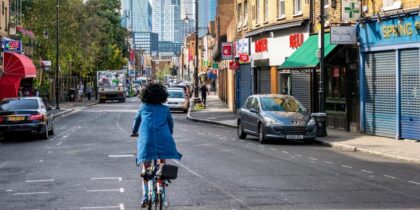This is the second major pandemic that I have lived through. I lost many friends in the HIV Aids pandemic and it has been hard as this pandemic has stirred up painful memories for me.
It has also pained me to see, yet again, a pandemic which has shone a light on the inequalities in our society, specifically in relation to Black Asian and Minority Ethnic (BAME) communities.
The Covid-19 pandemic has brought disruption, heartache and loss. Some have talked about the enjoyment they have found in the silence that has descended on our streets and enjoying the birdsong that is normally drowned out by traffic noise. However, for others, such as some people with mental health problems, this silence has not been either a new experience or particularly welcome.
the murder of George Floyd and others have shown that entrenched race inequality has horrific consequences
At the same time, the significant, disproportionate impact on BAME communities has been unequivocal. It highlights systemic inequalities that reinforce the enduring and cumulative nature of BAME health inequalities and racism in our society.
Recent events embodied in the murder of George Floyd and others have added something indescribable and shown that entrenched race inequality has horrific consequences.
The danger is that we normalise racial disparities in health care; that we normalise the fact that many frontline workers are low paid; that we normalise that they live in multi-occupancy households; and that we normalise that they have underlying health conditions.
the disproportionate impact [of Covid] on BAME communities highlights systemic inequalities that reinforce the enduring nature of racism in our society
The danger is that we continue to accept that BAME communities have the poorest health outcomes, because to address these issues is simply too complicated. Too often on a sensitive issue like this it is all too easy to lapse into euphemisms and avoid talking directly about racism.
Let’s not limit ourselves. We’ve done amazing things at speed in recent weeks. That must create an opportunity to do things differently and to really focus on improving the health of the whole population we serve. Let’s work to ensure the ‘new normal’ does not further embed racism and inequality.
In my role as the Chair of a mental health trust I will do my best to ensure that all voices and views are valued and treated as the valuable resource they are, and to ensure that we translate that into practical action.
That will mean creating the space to discuss uncomfortable issues. If we truly want to understand what is happening in our communities then we need to look at issues like racism, homophobia and misogyny. We need to trust people as experts in their own lives. We need to transform their experience by transferring power to them and involving them in decision making processes.
The danger is that we continue to accept that BAME communities have the poorest health outcomes, because to address these issues is simply too complicated.
I want to finish with a quote from one of my heroes, James Baldwin, the American author and civil rights and queer activist. He said:
“Not everything that is faced can be changed, but nothing can be changed until it is faced.”
We need to face up to the issues Covid-19 has shone a light on – as individuals, as a health and care system and as a society. And we need to create space to talk about them properly. This is the only way we will be able to put practical action in place to address them. Events of the recent weeks have shown it’s high time we did.




